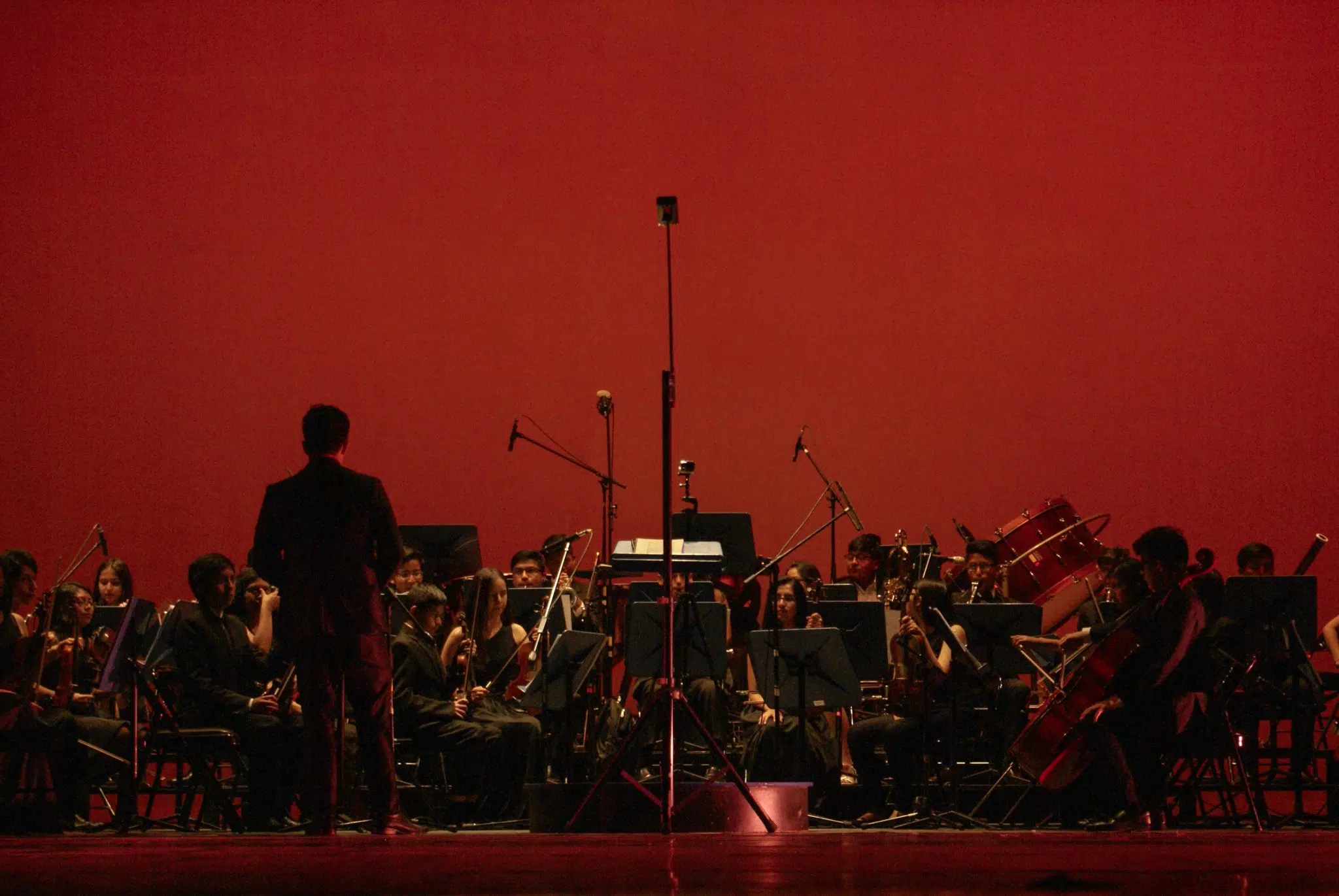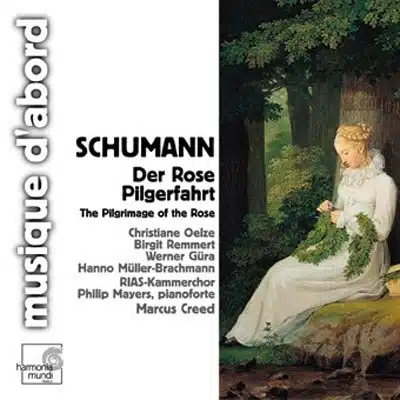
ROBERT SCHUMANN The Pilgrimage od the Rose, oratorio op.112 RIAS Kammerchor, Marcus Creed
At the sources of Romanticism
Considered by W. Siegmund-Schultze as ‘formally the most perfect of Schumann’s choral compositions’, The Pilgrimage of the Rose was composed in 1851, a few months after the composer had received a manuscript from the poet Moritz Horn with a subject he found fascinating. This fairy tale, deeply impregnated by the spirit of the Biedermeier period, tells the story of a little rose that aspires to the human condition – and thus, to love. In a few weeks Schumann composed this huge fresco for chorus, soloists and piano, orchestrating it in 1851-52 with the aim of reaching a larger audience. But it is undoubtedly in its original form that the work is most pertinent, because it is entirely in the glorious tradition of the Romantic Lied.
This title was released for the first time in 1999.
Artists
- Christiane OelzeSoprano
- Birgit RemmertContralto
- Tenor
- Hanno Müller-BrachmannBass
- Philip MayersFortepiano
- Marcus CreedConductor
Composers
Contents
ROBERT SCHUMANN [1810-1856]
· Erster Teil
Première Partie / First Part
Die Frühlingslüfte bringen (2'30)
· Johannis war gekommen (1'32)
· Elfenreigen: Wir tanzen, wir tanzen (1'11)
· Und wie sie sangen (4'34)
· So sangen sie (2'56)
· Bin ein armes Waisenkind (1'03)
· Es war der Rose erster Schmerz! (3'29)
· Wie Blätter am Baum (3'55)
· Die letzte Scholl' hinunterrollt (4'40)
· Gebet: Dank, Herr, dir dort im Sternenland (3'16)
· Zweiter Teil
Seconde Partie / Second Part
Ins Haus des Totengräbers (2'18)
· Zwischen grünen Bäumen (0'43)
· Von dem Greis geleitet (2'10)
· Bald hat das neue Töchterlein (1'54)
· Bist du im Wald gewandelt (3'00)
· Im Wald, gelehnt am Stamme (1'38)
· Der Abendschlummer (3'51)
· O sel'ge Zeit (2'46)
· Wer kommt am Sonntagsmorgen (1'15)
· Ei Mühle, liebe Mühle (1'47)
· Was klingen denn die Hörner (2'05)
· Im Hause des Müllers (2'35)
· Und wie ein Jahr verronnen ist (4'45)
· Röslein! (2'21)


